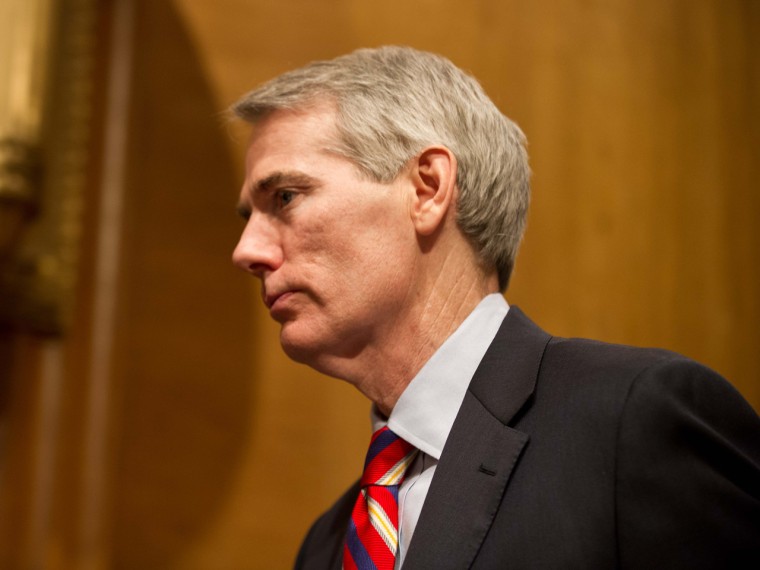Public opinion on same sex marriage is changing fast. In 2003, 55% of Americans opposed gay marriage; ten years later, that number is down to 36%, according to a new Washington Post/ABC News poll. And with President Obama coming out in support of gay marriage last year, it's a trend which elected leaders are increasingly reflecting--but at a slower rate.
For Democratic pols, the shift in opinion has meant a renewed presence in the culture wars. As Politico commented Thursday, "it is now riskier to be seen as a laggard in embracing gay marriage than to rush in line behind what just not long ago was a radical stand." This March, they said, was a watershed month, when backing gay marrriage moved "from risky to safe" in terms of political fallout. Hillary Clinton's video endorsement of the issue, and Bill Clinton's op-ed arguing against the constitutionality of DOMA, are key indications of a mainstream Democratic shift.
Republicans have had a more difficult time adjusting to evolving opinions. Since Sen. Rob Portman became the first GOP politician to support same-sex marriage this month, a number of his Republican colleagues have been pressed on their own positions. By and large, Republican lawmakers have remained constant with the party's official position on gay marriage, which calls any state law making it legal "an assault on the foundations of our society."
But the rhetoric from individual politicians has been softer, especially from those facing re-election.
"I believe in traditional marriage—between a man and a woman--without animosity," said Sen. Lindsey Graham. who will be on the South Carolina ballot in 2014. "I don’t mind if people are able to transfer their property, visit their loved ones in hospitals, but marriage to me, I’ve stayed with the concept of traditional marriage.”
New Jersey Gov. Chris Christie, a likely contender for the GOP presidential nomination in 2016, is "of two minds" on whether to support a ban on gay conversion therapy in his state. "Generally, philosophically, on bills that restrict parents' ability to make decisions on how to care for their children, I'm generally a skeptic of those bills," he said Thursday. "Now, there can always be exceptions to those rules and this bill may be one of them."
The cautious Republican line on gay marriage is exemplified by House Speaker John Boehner's statement Thursday: "This is a very divisive issue. People on both sides of this question have serious positions and I respect everyone's opinion. I just gave my opinion. My opinion is born out of my childhood, my faith, my beliefs that marriage is between one man and one woman. I respect other peoples' views."
Carefully hedged as it is, this is actually a major rewrite of the Republican party of 2004 and 2006, which pushed strongly for a constitutional amendment defining marriage as between one man and one woman. The party's emphasis has moved away from federal statutes--especially in light of two Supreme Court hearing on gay marriage scheduled to begin next week--and toward making this a state issue.
"Marriage is always a state issue, and I think it should remain a state issue," Sen. Rand Paul told Politico.
The GOP has been eager to rebrand after losing the presidency and several congressional seats in the last election. A recently released GOP autopsy detailing the places where Republicans have failed to connect with voters cited gay rights a key issue for younger voters. "These issues are a gateway into whether the Party is a place they want to be," the report said.
Among younger voters--a bloc Democrats have commanded in recent elections--a staggering 81% support gay marriage. For reference, the average age of senators is 61, for House members it's 57, and only 44% of Americans over 65 support same-sex marriage.
